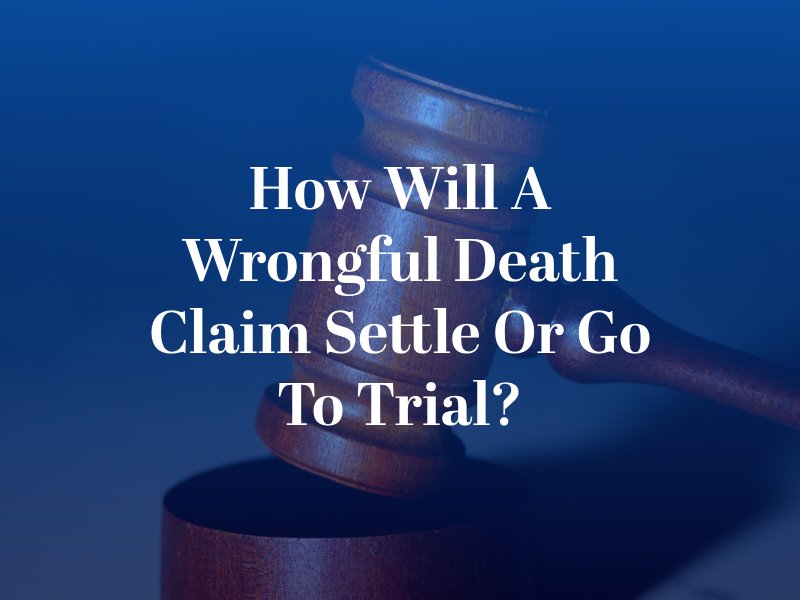Understanding Settlement and Litigation in Wrongful Death Claims
When it comes to understanding settlement and litigation in wrongful death claims, the process can feel confusing and emotional. Many cases are resolved through settlement, especially when liability is clear and the parties agree on damages. In other situations, wrongful death claims may head to court if there are disputes about who was at fault or how much compensation should be paid.

What Determines Whether a Wrongful Death Claim Settles or Goes to Trial
Many families choose to settle because it can bring closure without the added stress of a courtroom. Not every claim reaches that point, though, especially when key facts are in dispute. The strength of the evidence and who is involved in the case often shape whether things resolve quickly or move toward trial.
Disputes Over Liability or the Value of the Claim
When there is a disagreement about who caused the accident or how much compensation is fair, it can be tough to find common ground. Some cases go to trial because the other side denies responsibility, or they argue over non-economic damages like pain, loss of companionship, or grief. If both sides see the facts differently, a jury may be the only way to get answers.
Denied Claims or Delays From Insurance Companies
Even when the facts are strong, an insurance company might deny a claim or delay progress with repeated requests and unnecessary reviews. These tactics can make families feel stuck and unsure about what comes next. When negotiations stall or bad faith becomes a pattern, filing a lawsuit is often the only way to move the case forward.
Common Case Types Where Litigation May Be More Likely
Some case types tend to involve larger damages or tougher questions, which can make them harder to settle out of court. Insurance companies may be slower to make fair offers or more likely to push back when the claim falls into one of these categories. Below are common case types where personal injury litigation is more likely:
- Surgical errors
- Medical malpractice involving death
- Multi-vehicle collisions
- Industrial deaths
- Long-term exposure cases
- Nursing home incidents
- Fatalities caused by defective products
Illinois law gives families the right to pursue compensation through a wrongful death claim under 740 ILCS 180/1. In some cases, such as those involving medical malpractice, damages for pain and suffering may be subject to non-economic limits under 735 ILCS 5/2-1115.1. These legal details can influence whether a case settles or goes to trial, especially when the loss involves medical care or disputed liability.
How Settlement Timelines and Trial Outcomes Differ
One of the first things families often ask is how long a settlement might take compared to going through a full trial. Both options can lead to closure, but they come with different timelines, levels of stress, and possible outcomes. Below we cover what usually sets them apart.
Factors That Speed Up or Delay a Settlement
Settlements tend to move faster when everyone is on the same page and the paperwork is ready to go. If the facts are clear and the insurer is responsive, things can come together fairly quickly. On the other hand, delays are common when there is missing documentation, unclear liability, or when the insurance company keeps asking for more time or information.
What to Expect From a Trial Timeline in Illinois
Trials take more time and follow a more detailed process. You will likely go through jury selection, written discovery, depositions, and expert reviews before ever setting foot in a courtroom.
Under Illinois Supreme Court Rule 213(f), both sides must share details when it comes to expert witnesses, which can add to the prep time. Once the trial ends, there might even be appeals or post-trial motions that can stretch the timeline even further.
